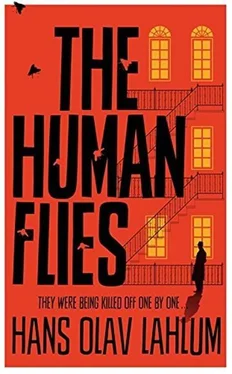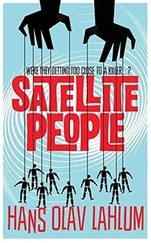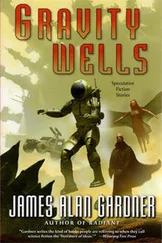I nodded and made a swift decision to attack from a different angle.
‘Absolutely. We can instead talk about the mysterious man in the blue raincoat whom you said you had seen here in the building over the Whitsun weekend last year, but not since.’
He nodded pensively, with some reluctance.
‘If I was to say that he was seen wandering the corridors again on the evening that Harald Olesen was murdered, and that if you saw him last year you must have been looking in a mirror, and that it was you who threw a blue raincoat out in the rubbish… what would you say then?’
Andreas Gullestad pulled himself up slightly in his chair, put his right hand to his thigh and lifted his left hand to point at something.
‘Then I would say there has been a terrible misunderstanding that I hope can be resolved immediately. I do have a blue raincoat, but as you can see, it is still hanging on the coat hook by the door!’
He was pointing towards the door behind Patricia. Instinctively, I turned round, but could not see a blue raincoat. Nor could I see any coat hooks that the raincoat might hang on. Instead, I saw the shock on Patricia’s face. But it was only when I heard a loud whimper from Sara, followed by a strange thud that I could not place, that I spun my head back round. But it was too late.
It was a very different room that I saw The friendly, harmless Andreas Gullestad had vanished, and his wheelchair had toppled back onto the floor. In the middle of the room stood a man of around my height, his legs like a panther ready to pounce. His face was so changed that it took a few seconds before I recognized him. Andreas Gullestad’s relaxed expression was gone. Despite the different hair colour and rounder cheeks, I could now recognize the young Deerfoot’s intense and focused face from the old photograph. However, the biggest and most worrying change was that I was looking straight down the barrel of a.45-calibre Kongsberg Colt.
‘This is my father’s old army pistol, and it was hidden in a pocket inside the cushion in my wheelchair. I have literally been sitting on the murder weapon for ten days!’
He said this with a shadow of a smile on his lips, but in a voice that was very different and could hardly be described as jolly. It was tense and serious – and threatening rather than friendly. Andreas Gullestad had become a totally different person when he threw back his wheelchair and pulled out a gun. I did not doubt for a moment that this was a man who had shot people before – and was willing to do so again. His finger was ready on the trigger. The only positive thing was that he appeared to be prepared to talk. And with a racing heart, I threw myself at this opening.
‘I know that it is the gun that killed Harald Olesen, but how many people did it kill during the war?’
He nodded in acknowledgement.
‘Four. It was me who shot all three soldiers during the incident in 1944. I could live with that, even though they still haunt my dreams from time to time. War is war, and occupiers are occupiers. What was far worse was that I also shot the mother of your young Swedish friend.’
There was another whimper from Sara. The twitch in Deerfoot’s face was like an echo. It was obvious that he was reliving painful old memories. I tried desperately to encourage him to continue.
‘I had a feeling that Harald Olesen’s report in Sweden was misleading… but what actually happened?’
He shook his head slowly.
‘The report was about five minutes from the truth. If it had been right, everything would have been different. The fact that there was an exchange of fire and three German soldiers were killed is true. What is not true is that the refugees we had with us were shot at the same time. We had shot them ourselves a few minutes before.’
Sara’s whimpering increased. Deerfoot’s hand trembled slightly and he continued in an unsteady voice.
‘It has haunted me every hour of the day for the whole of my life since – and it was Harald Olesen’s fault, all of it. He took their lives and ruined mine at the same time. And he had to die for his sins.’
I said nothing more for fear of provoking him. Fortunately, he was still delving deep into his memory.
‘It was hell on earth, and I have relived it every day since and almost every night… The endless journey with those hopelessly slow refugees who had never used skis before. Harald and I could easily have escaped from the Germans, but we could not leave the refugees behind. At one point, he said to me that all hope was lost and that I should escape while I could, but I told him that I would stay with him and with them to the bitter end. We hoped that we might be spared when the storm blew up and three of the Germans turned back, but the other three carried on and were getting closer by the hour. We thought that we could hide at the top, but they were gaining ground as we hauled the refugees up with us. They fired at us from further down the mountainside when we finally got to the summit. Then it soon became impossible to see anything, and almost impossible to carry on in the storm. I knew exactly where we were – a matter of miles from the Swedish border – but we would not be able to make it with the refugees in a howling snowstorm. We hid behind a rocky outcrop, with the two increasingly desperate refugees and a crying baby, for the rest of the night, knowing full well that our pursuers might find us at any time. Hour after hour we sat there, each with a gun in our hand, ready to shoot if we suddenly came under fire. Finally, we dared to carry on in the morning once the storm had dropped. Harald hoped that the Germans had turned back, but I had my doubts. It is hard to give up the hunt when you have come so far and are so near. We were all together, exhausted and nervous, when it happened.’
We listened with bated breath. He swallowed several times before he continued.
‘I still do not know exactly what happened, but suddenly, Harald Olesen and the man we had with us were arguing in raised voices. Then there was a shot. And Harald Olesen stood there, paralysed, with a smoking gun in his hand, staring at a dead man in the snow. Then I saw the wife of the fallen refugee screaming and waving her fists at Harald. So I gave it a moment’s thought, then shot her in the head. I have since often wondered why I shot her. I looked up to Harald, not just as a leader, but also as a father figure. My instinct was to protect him under any circumstance. But then, she was unarmed, and I knew that she was. So the answer has to be that I was scared that her screams would let them know where we were, and I was sick and tired of being held back by her and therefore wanted her dead.’
Deerfoot swallowed again before carrying on, but his feet were still dancing – and his finger was still on the trigger.
‘So there I stood. Both refugees lay dead in the snow, and the mother still had a crying baby at her neck. Harald Olesen stood as if petrified, looking down at them. Then I heard the sound of voices and skis from around the crag. For a moment I thought about killing myself, but then decided to risk the small chance that I had to survive. I ran over to the nearest snowdrift and threw myself down behind it. I was lying there when they appeared. Harald Olesen was still in his own world. I realized that my only hope was to kill all three of them by myself – and I only had six bullets left in the gun.’
Deerfoot’s story was almost as tense as the situation we now found ourselves in, and very frightening indeed. He blinked a couple of times, but his hand was now steady and his finger remained on the trigger.
‘The three soldiers were young: two were around twenty-five, and one was barely a day over twenty-one. An unexpected sight awaited them: two dead refugees in the snow and Harald Olesen standing there, out of his senses. I was not that far away from them and kept my aim as long as I dared. But when one of them pointed to my tracks in the snow, there was no time to think anymore. So I fired at the one who was closest, then quickly moved my aim to the next. The first one fell straightaway, and the second before he could pull his gun, but the third managed to do this and fired at me several times. Twice I just managed to throw myself to the side in the snowdrift before the bullets hit the spot where I had been. In the end, I stood up and aimed at him. My first shot missed. He spun round and aimed. We shot at each other at the same time. I felt the pressure as the bullet sliced past my ear, but my bullet hit him in the cheek. He stood there and swayed for a moment, with his gun trained on me, but then fell, the blood shooting up into the air. When I fired again, I hit him in the middle of the forehead. The scene that met my eyes when I came out from behind the snowdrift was gruesome. Five dead people in the snow. The only man standing was Harald Olesen, and he was apparently still paralysed.’
Читать дальше











